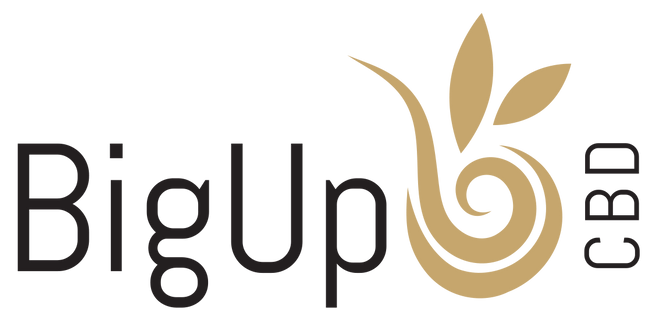What Is CBD Coffee?
What is CBD coffee? CBD and coffee may not be the things you would typically associate together. This is why we're going to discover its creation, taste, effects, and benefits, so you balance the jittery effect of caffeine and the calming influence of CBD.
What Is CBD Coffee?
CBD coffee is a type of coffee with infused or added CBD extract. It may come from brewing CBD-infused coffee, adding CBD oil or tincture, using hemp powder, or mixing CBD honey. CBD can be water-soluble, allowing the extract to infuse the flavor well with coffee.

It is a type of beverage combined with cannabidiol extracted from a hemp plant. Whether you want an espresso, cold brew, or latte, an extract of cannabidiol can serve as an add-on ingredient.
However, CBD oil may float on the surface of coffee because oil is less dense than water. When you stir it, there's also a chance of breaking up the oil into smaller droplets.
What Does CBD Coffee Taste and Smell Like?
CBD coffee may taste leafy, vegetal, earthy, or nutty because the CBD extract comes from plant parts. Depending on the CBD coffee grounds or tincture you're using, CBD may come from Cannabis sativa, Cannabis indica, or Cannabis ruderalis.
Quality CBD infused coffee grounds or similar products generally should taste more like coffee. You may notice a slight hemp aroma, although the scent of caffeine still prevails.
More than that, the rich, full-bodied scent and flavor of caffeine complement CBD's pungent-woody flavor and aroma. The taste may also depend on how you would make CBD coffee, particularly if you're using over-roasted or stale grounds.
How Much CBD Can I Put in Coffee?
While CBD coffee is still milder than smoking marijuana, it's best to consume CBD in small doses. Ideally, you should limit the dosage to 5 to 15 milligrams of CBD per drink. However, this could still depend on how your body reacts to CBD and caffeine.
Caffeine is the active ingredient in coffee, and it is the most popular stimulant. Avoid rushing in sipping the coffee, as it would take a while for you to feel the effects.
You can eventually adjust the dosage once you gauge how well your body responds to caffeine and CBD. Fortunately, brands often indicate the dosage in each pack of beans or every coffee pod. You can better control the dosage if you're using cannabis butter, CBD-infused honey, or CBD tincture.
Can CBD Coffee Make Me Feel High?
CBD content diminishes when exposed to heat, as CBD can degrade in a heated solution of 71 degrees Fahrenheit. This is why you won't usually feel the psychoactive effects when drinking CBD coffee, as opposed to smoking marijuana. Still, such results may kick in about 45 minutes after drinking coffee.
The liver can only process caffeine and CBD oil as much as it can, depending on the health of your body organs. In effect, your body's ability to metabolize may influence the intensity of the effects. Besides, caffeine and CBD oil can increase the duration of effects on each other.

What Are the Effects of CBD Coffee?
While there may be no severe side effects of drinking CBD coffee, some people have a low tolerance for caffeine. CBD may make you feel a bit drowsy, so the invigorating effect of caffeine can help balance it. Other than that, caffeine may trigger these effects.
- Headache: Caffeine can narrow the blood vessels surrounding the brain. After drinking coffee, these vessels would enlarge. This process would increase blood flow around the veins, pressuring the surrounding nerves and causing a withdrawal headache.
- Vomiting: Acids found in coffee can irritate the stomach lining, especially when drinking on an empty stomach. However, CBD can help quell nausea and vomiting.
- Diarrhea: Coffee has laxative properties, so drinking more than 2 cups of coffee per day may cause diarrhea.
- Nervousness: Drinking coffee can stimulate the brain's fight or flight response. When the adrenal glands tire from overstimulation, you may suffer from adrenal fatigue, which triggers nervousness.
- Irritability: Caffeine can promote an increased sense of perception by stimulating the brain. This causes a person to become more aware of the surroundings and mild annoyances.
- Chest pains: Caffeine can stimulate the nervous system, which may trigger heart palpitations in some people. If you have caffeine sensitivity, the heart will beat fast enough, increasing blood pressure and causing chest pains. The good thing is that CBD can increase the body's levels of anandamide, soothing chest pains.
- Muscle spasms: Consuming high amounts of caffeine can trigger involuntary tensions of muscles fibers, causing muscle twitching and body cramps.
- Confusion: Caffeine intoxication or consuming too much caffeine can make you feel disoriented or confused. However, the calming properties of CBD can help counteract such problems.
- Insomnia: Caffeine is an effective stimulant, and taking it regularly may disrupt the body's natural sleep rhythm. In effect, you may still encounter sleeplessness, nighttime awakenings, and poorer sleep quality.
Meanwhile, CBD may also cause dry mouth, drowsiness, low blood pressure, and diarrhea to some people. CBD is a stimulant, and the combination of CBD and coffee may prompt various responses. Thus, it's essential to control your CBD intake, whether in the form of coffee beans, oil, honey, or powder.
If you're experiencing symptoms that hamper your mobility and ability to think, it would be wise to change the dosage. It's also possible that CBD and caffeine are counteracting with medication, so consider consulting your physician.
Why Should I Make CBD Coffee?
Do you tend to gulp cups of coffee throughout the day? While you may find coffee a good source of energy boost, it can sometimes cause jitters, rapid heartbeat, digestive issues, and even anxiety due to caffeine.
CBD, on the other hand, has a soothing and relaxing effect. It can tone down the stimulating reactions of caffeine. This is why coffee and CBD work well together. Each cup of CBD coffee can make you feel alert while also having a tranquil mood.

- Drinking coffee is an excellent way to consume small amounts of CBD. Coffee lets the CBD travel through the digestive tract instead of the lungs. If you're not veering toward smoking or vaping, ingesting CBD through beverages is a suitable alternative.
- Coffee is a staple drink for some people. It may even be part of a morning ritual or fitness regime. It will be easier to ingest CBD if you add it to something you would normally prepare and consume.
- CBD can diversify your taste palate. The wonderful world of brewing coffee involves discovering lots of coffee beans and flavorings. Adding CBD to your ingredients can give you a unique take on this common beverage.
What Are the Benefits of CBD Coffee?
The cannabidiol-infused drinks and food market expects a $5.9 billion growth by 2024. CBD-infused coffee is among the factors that would drive the industry's growth. As the world innovates CBD trends, we will continue to see the benefits of CBD coffee.
Coffee is a staple beverage in many countries and cultures. It's the perfect drink to explore the potential benefits of CBD, especially its promising results for medical treatments.
Note that the benefits of CBD coffee may still depend on a person's unique body structure and current health condition. However, drinking CBD coffee may provide these gastronomic and health benefits.
- Greater mental alertness: The caffeine alone can jumpstart the nerves as it interacts with adenosine receptors. By combining CBD and coffee, the adenosine modulators can improve efficiency, providing better control over neurotransmitters that dictate whether the body feels tired or not.
- Pain relief: CBD has pain-relieving properties as it can increase the body's anandamide levels, which influences pain regulation, perception, and mood. Likewise, it can help reduce discomfort in severe abdominal pain.
- Anti-anxiety: Some of the satisfaction in drinking coffee also comes from smelling the aroma. The rich smell of coffee can help relieve nervousness in some people. A study even shows that coffee's aroma can recover anxiety and endocrine controls.
- Improve serotonin levels: Studies suggest that CBD can mimic serotonin's actions by stimulating body receptors, influencing mood and pleasure. Additionally, caffeine can increase serotonin and dopamine levels.
- Prevent acidity when drinking coffee: CBD can engage with the soft muscles surrounding the gastrointestinal system, causing the muscles to relax despite taking caffeine. It can also work on the stomach's CB1 receptors to suppress gastric acid secretion, reducing esophageal lining inflammation often caused by drinking coffee.
- Help burn body fat: Caffeine promotes lipolysis by releasing adrenaline and boosting the process of breaking down fats. Similarly, CBD may promote the browning of fat cells, which improves heat generation in burning calories.
Conclusion
CBD coffee enables you to level up your favorite beverage by controlling the adverse reactions of caffeine or the psychoactive effects of hemp. If you want to minimize your CBD and caffeine intake, learning how to make CBD coffee is the way to go.


